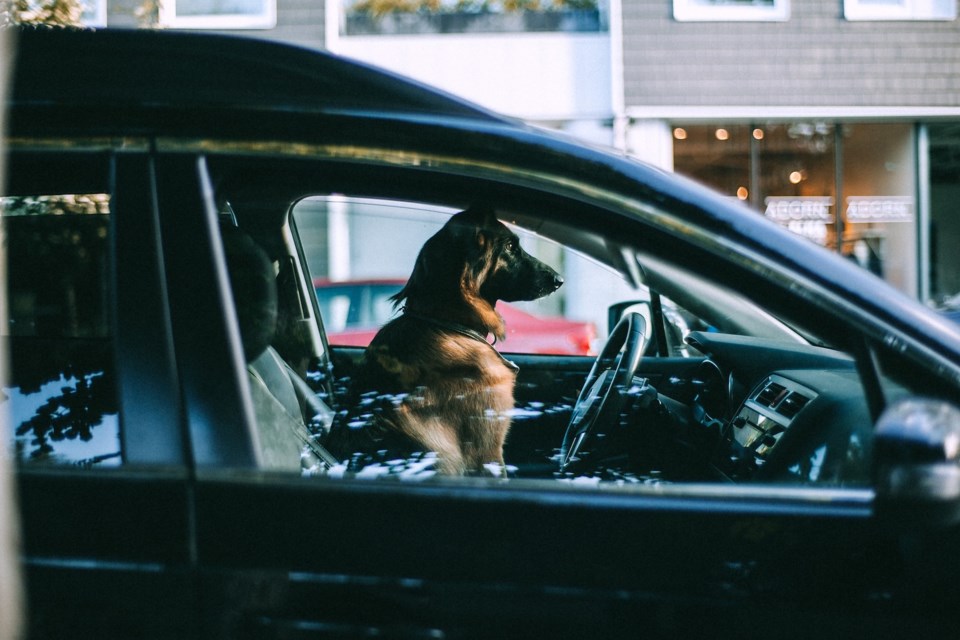Leaving a pet in a hot vehicle will soon come with significantly increased penalties.
On Monday, council committee gave the nod to a number of changes to chapter 285 of the city’s municipal code, which governs several matters related to the care of animals within the city.
Among the changes is a significant increase to the maximum penalties for breaching the code. Where $5,000 was the previous maximum for an offence, the new penalties will be as high as $25,000 for a first offence and $50,000 for a second.
“It is staff’s view that the current $5,000 limit does not provide for both a specific and general deterrent in those cases where a significant breach of the chapter has occurred, such as where an animal has been seriously harmed or died as a result of being left in a vehicle on a hot day,” noted a staff report.
The city has received an average of nine complaints per year over the past decade with regard to chapter 285, each of which was due to a dog being left in a hot vehicle.
The changes come due to the city taking over animal control related enforcement services from the Ontario SPCA on April 1, and the subsequent decision to update that part of the city’s municipal code, which was put into effect in 2005.
Staff have removed several sections of the chapter, as some are already covered and enforced under provincial legislation that came into effect in 2020, but brought forward several additions and changes as well.
Despite existing provincial legislation, staff viewed a bylaw regulating care of animals as beneficial.
"The police and provincial PAWs Inspectors also have authority to deal with animals that are left in distress in a vehicle under the PAWs Act. Staff believe there is merit, however, in continuing to have a bylaw provision regulating animals left in vehicles that can be enforced by (the city),” the staff report stated.
“Time is of the essence when animals are left in hot vehicles, and the more enforcement resources that are available to assist, the better to prevent harm or death to an animal.”
The chapter currently states that “no person shall cause, permit or allow an animal to be confined in a vehicle without appropriate ventilation.”
Staff noted that cracking a window, for example, does little to reduce the temperature of a hot vehicle, and recommended the chapter state that “no person shall cause or permit an animal to be in distress while the animal is inside a motor vehicle.”
Staff also added a definition of distress:
“(a) the state of being in need or appearing to be in need of proper care, water, food, or shelter, or; (b) being or appearing to be injured, sick, in pain, or suffering.”
These changes are meant to clarify when an offence is being committed, the staff report noted.
In an instance where a police officer is called to remove an animal from a vehicle, and additional care is required, the officer may seize and impound the animal.
“This provision is not currently in Chapter 285 and is intended to formalize past practice where, for example, an animal control officer for the Ontario SPCA would bring an animal to a veterinarian for assessment after being removed from a vehicle by a police officer,” the staff report stated.
“The chapter also stipulates that if an animal is impounded, the Ontario SPCA can charge an initial impound fee of $30, daily maintenance fee of $9, and any applicable veterinary costs before releasing the animal back to the owner.”
Staff also recommended a provision that prohibits tethered dogs from being able to reach onto adjacent properties or city sidewalks, noting 10 complaints in the past 10 years, so that the city is able to deal with these complaints moving forward.
The decision made at Monday’s council committee meeting is subject to ratification at Thursday's council meeting.
